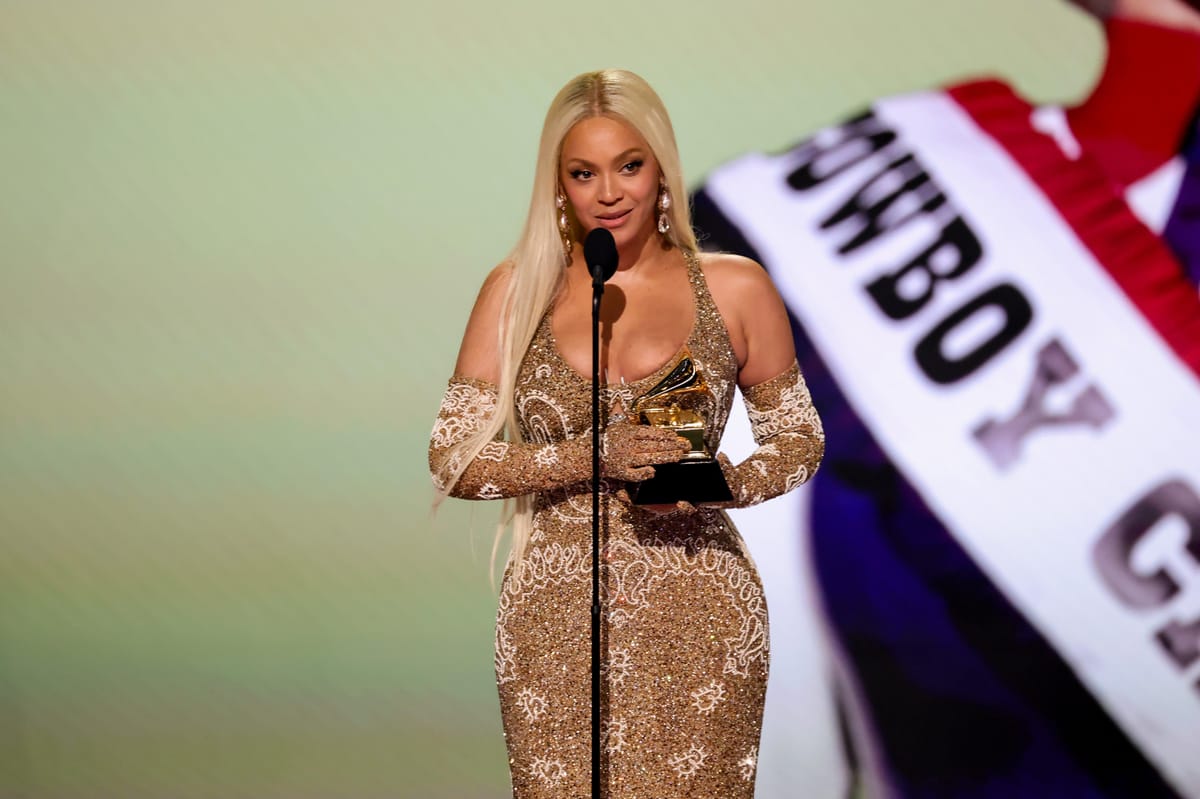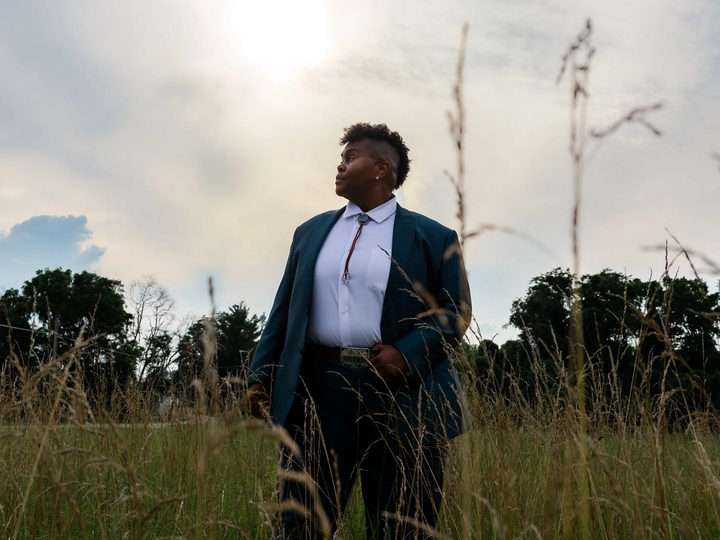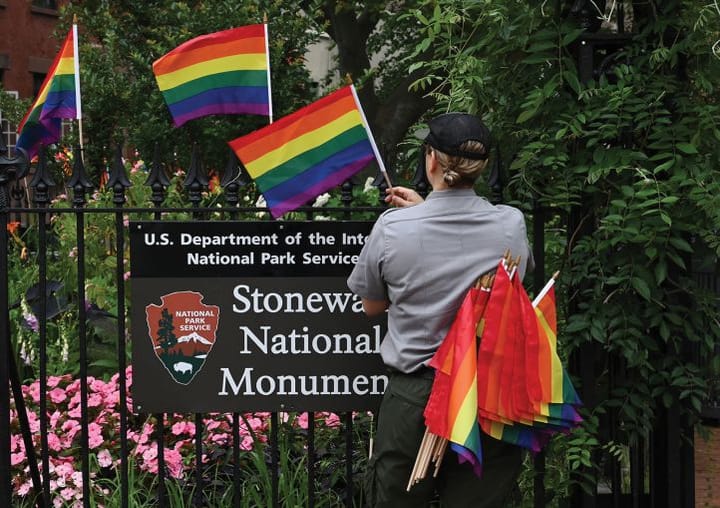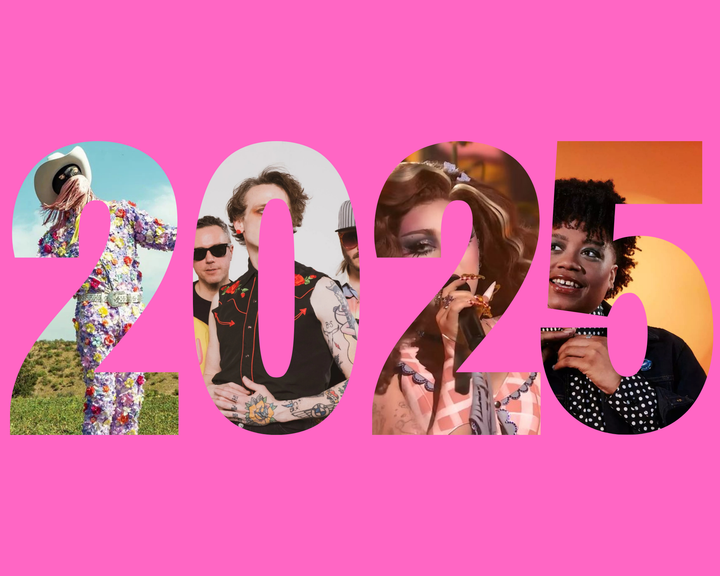Beyoncé’s Country Grammy Wins and Notes for the Future
Josh Friedberg celebrates Beyoncé’s win while taking music industry institutions to task for their hypocritical embrace

We're running a membership subscription drive! Join us to read the full essay – and expect features like these every Thursday when you become a paid member of Rainbow Rodeo!
I usually don’t care about the Grammy awards because they are an industry celebration that has never sought to reward quality or merit. But I am happy that Beyoncé won her first ever Album of the Year and Best Country Album trophies for Cowboy Carter, whether or not her album deserved them.
Her wins mean that Beyoncé and the Grammys stuck it to the overt racism and sexism of the Country Music Association awards (CMAs) and the mainstream country industry. But we should not assume that Beyoncé’s win subverts the dominant culture of either country music or the U.S. at large.
It is an important, mostly symbolic victory. But to make the dominant culture in country music budge–or to move forward without its support–we must continue to work with our scenes, including queer country scenes, to be more equitable and support marginalized voices.
That said, the reaction to Cowboy Carter from Luke Bryan and others in the country establishment did not prove that country music and its surrounding cultures are uniformly racist and sexist. It proved that the mainstream machinery of the music industry works exactly as it’s intended to: not in the interests of people of color, but of the maintenance and reproduction of the power of white cis-hetero men in U.S. society.
For me, this whole situation with Beyoncé–and other Black artists more entrenched in the country field–proves how interesting and sadly predictable it is that the dominant culture in country music values Black people more as influences on white artists than on their own terms.
In Hidden in the Mix: The African American Presence in Country Music (2013), scholar Diane Pecknold shows how the country industry loves to talk about individual Black people and styles that heavily informed the music of giants like Jimmie Rodgers, the Carter Family, Hank Williams, and Bill Monroe, while undervaluing the active participation of Black artists, producers, and consumers of country.
This idea is especially true for Black female and/or queer artists. Beyoncé, Linda Martell, Mickey Guyton, Rhiannon Giddens, Valerie June, Amythyst Kiah, Brittany Spencer, Brittany Howard, Allison Russell, and others will never be accepted by the country establishment like Tracy Chapman–when Luke Combs covered her–let alone Combs, Morgan Wallen, or Jason Aldean. This is true despite the established presence of rapping from white country artists, which once again shows how Black influence on country music is deemed acceptable, but the consistent acknowledgment of the Black presence in country is hard to come by.
To read more, sign in or sign up as a paid subscriber!




